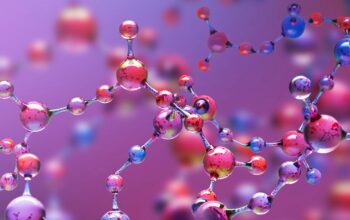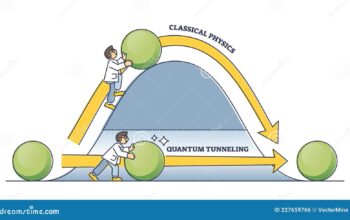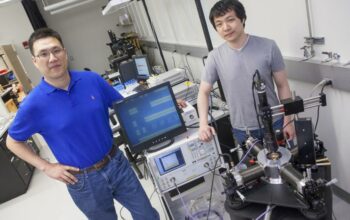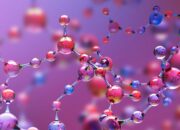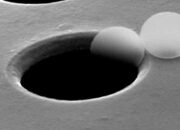The contemplation of consciousness often conjures up images of sentient beings—humans and animals endowed with awareness. However, the inquiry into whether all molecules possess consciousness invites a more nuanced exploration of the constituents of matter. To tackle this question rigorously, one must first delineate the definitions and implications of both ‘molecules’ and ‘consciousness’. This article will engage in a multilayered discourse that traverses through philosophical thought, scientific inquiry, and the intersection of the two.
1. Defining Molecules
Molecules are intricate assemblies of atoms held together by covalent bonds. They can range from the simplicity of diatomic gases, such as oxygen (O2), to immense macromolecules like proteins and nucleic acids. The complexity of a molecule often correlates with its functionality within chemical reactions and biological processes. For instance, water (H2O) is a simple molecule essential for life, characterized by its polar nature, while larger macromolecules like DNA encode the genetic blueprints that govern the development of living organisms.
2. Concepts of Consciousness
Consciousness poses a labyrinthine question that has incited speculation across various disciplines—philosophy, neuroscience, and even physics. Generally defined, consciousness encompasses the state of being aware of and able to think about one’s own existence and environment. This phenomenon is not merely about perception; it involves the capacity for introspection, intention, and the qualitative experience of states of awareness often referred to as ‘qualia’. While humans manifest a sophisticated level of consciousness, can the same be claimed for more primitive structures such as molecules?
3. The Philosophical Perspective
The philosophical debate surrounding the consciousness of non-living entities has deep roots. Panpsychism, for instance, posits that consciousness is a fundamental and ubiquitous aspect of the universe, existing even at the subatomic level. According to this view, molecules might be construed as possessing a rudimentary form of consciousness, suggesting that awareness is a spectrum. This perspective contrasts sharply with materialistic philosophies that assert consciousness emerges exclusively from complex biological systems, primarily the brain. If one were to accept the panpsychist perspective, it would necessitate a radical reevaluation of the intrinsic properties assigned to matter.
4. Scientific Investigations
From a scientific standpoint, consciousness is frequently investigated through the lens of cognitive neuroscience. Current theories propose that consciousness arises from the integrated activity of neural networks. Therefore, molecules, which lack cognitive architectures, do not demonstrate the capabilities typically associated with consciousness. Neural processes—including synaptic firing and network dynamics—are critical for the emergence of conscious awareness. Nonetheless, emerging fields such as quantum biology have begun to bridge the gap between consciousness and molecular interactions, suggesting that certain biometric processes may be influenced by quantum mechanics.
5. Biological Molecules and Consciousness
Biological molecules such as neurotransmitters and hormones play indispensable roles in facilitating conscious processes in living organisms. For example, dopamine and serotonin influence mood and cognitive functions, facilitating a conscious experience. However, this does not imply that the molecules themselves are conscious; rather, their interactions within a larger system give rise to conscious experiences. The relationship between these complex molecules and consciousness is a prime example of how intricately woven biological systems are, highlighting the importance of context in discussions of awareness.
6. The Emergence of Complexity
Another avenue of exploration is the notion of emergent properties. Emergence posits that certain characteristics arise from the interplay of simpler systems. Consequently, it is conceivable that consciousness is an emergent property of the intricate arrangements and interactions of molecules within neural architectures. Just as a singular water molecule does not possess liquid properties, a collection of molecules organized into a brain may yield consciousness. This perspective aligns with systems theory, which endeavors to understand how larger entities exhibit properties not observable in individual components.
7. The Role of Information Processing
In light of information theory, consciousness may be associated with the capacity for processing, storing, and transmitting information. While molecules engage in interactions that can be likened to information exchanges — for example, signaling pathways in cells facilitate responses to stimuli — equating this function to consciousness is contentious. The distinction between mere information processing and conscious awareness is pivotal. Thus, while molecules may be involved in the transmission of information vital for life, this does not confer a conscious status upon them.
8. Ethical and Implicative Considerations
Exploring the potential consciousness of molecules raises ethical quandaries. If consciousness is a universal property, it would demand ethical considerations regarding all matter, redefining our relationship with the environment and other life forms. This philosophical implication urges society to reevaluate concepts of morality and rights, extending beyond traditional boundaries that regard only sentient beings as deserving of consideration. It provokes thought on how we manifest our understanding of consciousness in daily life and policy-making, especially in environmental stewardship.
9. Conclusion
The inquiry into whether all molecules are conscious transcends mere scientific curiosity; it delves into profound philosophical territories. Consciousness appears intrinsically linked to complex systems, particularly those resulting from intricate interactions among biological molecules within neural substrates. To conclude that all molecules possess consciousness would necessitate an expansive redefinition of consciousness itself. As our understanding of both molecular science and consciousness continues to evolve, the intersection of these domains will remain fertile ground for inquiry and debate.
